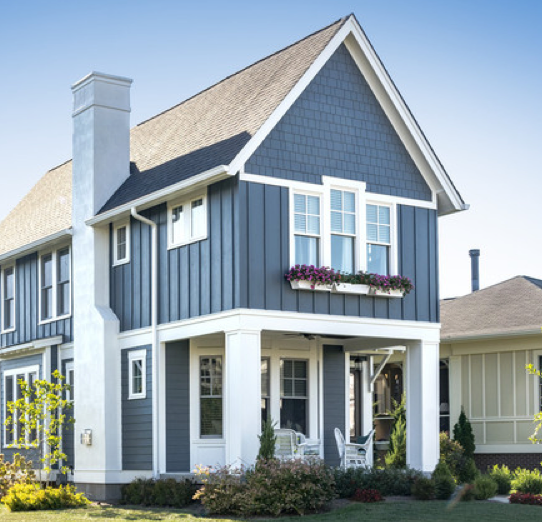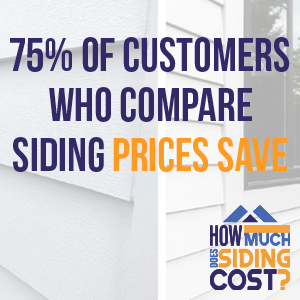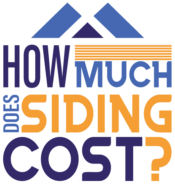
The Cost of Replacing Siding: A Realistic Budget Guide
The exterior of your home is one of the first things people see and it can greatly impact the overall appearance and value of your property. Over time, siding can deteriorate and lose its protective qualities, leading to the need for replacement. If you’re considering replacing the siding on your home, it’s important to have a realistic budget in mind. In this blog, we’ll take a closer look at the cost of siding replacement and what you can expect to pay.
Factors Affecting the Cost of Siding Replacement
There are several factors that can impact the cost of siding replacement, including:
- The size of your home
- The type of siding you choose
- The complexity of the project (e.g. if your home has multiple levels or if there are existing issues that need to be addressed)
- The cost of labor in your area
- Any additional features or upgrades you want to add
Average Cost of Siding Replacement
The average cost of siding replacement can vary greatly depending on the factors mentioned above. On average, you can expect to pay anywhere from $5,000 to $15,000 for a complete siding replacement project. The overall cost will depend on the size of your home, the type of siding you choose, and any additional features or upgrades that are included in the project.
For example, vinyl siding is typically one of the most affordable options and can cost between $3,000-$7,500 for a 1,500-square-foot home. On the other hand, brick or stone siding may be more expensive and could cost anywhere from $7,500 to $15,000 for a 1,500-square-foot home.

In addition to the cost of materials, you should also factor in the cost of labor. Labor costs can vary based on your geographic location and the complexity of your project. Generally speaking, professional installation for a 1,500-square-foot home will range from $2,000-$4,500 depending on the type of siding and any additional features you want to add.
What is a Realistic Budget for Replacing Siding?
When planning for a siding replacement project, it’s important to have a realistic budget in mind. To get an accurate estimate of the cost of your project, you should consult with a professional contractor who can provide you with an itemized list of materials and labor costs.
In general, you can expect to pay anywhere from $5,000 to $15,000 for a complete siding replacement project. This cost will depend on the size of your home, the type of siding you choose, and any additional features or upgrades that are included in the project.
Type of Siding:
One of the biggest factors affecting the cost of siding replacement is the type of siding you choose. Some of the most popular types of siding include:
- Vinyl siding
- Wood siding
- Fiber cement siding
- Aluminum siding
Vinyl siding is often the most affordable option, while wood siding can be the most expensive. Fiber cement and aluminum siding are typically priced somewhere in between. On the other hand, brick or stone siding can be the most expensive and typically cost between $7,500 to $15,000 for a 1,500-square-foot home. It’s important to do your research and take all of these factors into consideration before making a decision on the type of siding you’ll use for your project.

Labor Costs
Labor costs can also have a significant impact on the overall cost of your siding replacement project. It’s important to do your research and get multiple quotes from contractors in your area to get an accurate estimate of what you can expect to pay for labor.
Replacing the siding on your home can be a significant investment, but it’s also an investment that can greatly improve the appearance and value of your property. By understanding the factors affecting the cost of siding replacement and having a realistic budget in mind, you can make an informed decision and ensure that your siding replacement project is a success.
The Benefits of Replacing Siding
The siding of your home is a crucial component in protecting your home from the elements. Over time, siding can deteriorate and lose its effectiveness, leading to the need for replacement. While replacing siding can be a significant investment, it can also offer a number of benefits for your home and your family.
Improved Energy Efficiency
One of the biggest benefits of replacing your home’s siding is improved energy efficiency. Newer siding materials are designed to be more energy efficient than older materials, helping to reduce your monthly energy bills. By replacing your home’s siding, you can keep your home cooler in the summer and warmer in the winter, saving you money on energy costs over time.
Increased Home Value:
Replacing your home’s siding can also increase its overall value. A new and updated exterior can greatly improve the appearance of your home, making it more attractive to potential buyers and increasing its resale value.

Protection from the Elements
Another benefit of replacing your home’s siding is increased protection from the elements. New siding materials are designed to be more durable and long-lasting, helping to keep your home protected from rain, wind, and other environmental factors.
Lower Maintenance Costs
Newer siding materials are also designed to be low maintenance, helping to reduce the cost of maintaining your home’s exterior over time. Unlike older materials, newer siding materials are resistant to rot, decay, and other forms of damage, reducing the need for frequent repairs and maintenance.
Improved Curb Appeal
Finally, replacing your home’s siding can also greatly improve its overall appearance and curb appeal. By choosing a new and updated siding material, you can give your home a fresh and modern look, making it the envy of your neighborhood.
Replacing your home’s siding can offer a number of benefits, including improved energy efficiency, increased home value, protection from the elements, lower maintenance costs, and improved curb appeal. By investing in a siding replacement project, you can ensure that your home is protected and looking its best for years to come.
